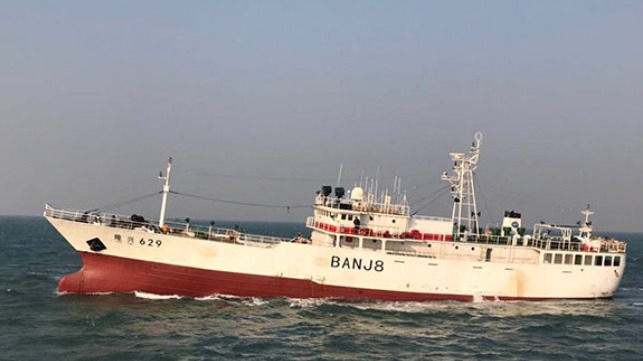CBP Bans Chinese Fishing Company's Products Over Labor Abuses

On Friday, U.S. Customs and Boarder Protection (CBP) issued a complete import ban against Dalian Ocean Fishing Co., Ltd., the owner of the notorious vessel Long Xing 629.
This Withhold Release Order (WRO) was based on a CBP investigation that found evidence that Dalian Ocean uses forced labor aboard its 32 vessels.
The International Labor Office uses 11 indicators to define forced labor. During the CBP’s investigation, it found all 11 indicators in Dalian's operations, including physical violence, withholding of wages, and abusive working and living conditions. The majority of the workers affected were Indonesian.
“Companies that exploit their workers have no place doing business in the United States," said Secretary of Homeland Security Alejandro N. Mayorkas. "This Withhold Release Order will ensure we continue to protect the human rights of those working in the distant water fishing industry, while also upholding safeguarding our national and economic security."
The Withhold Release Order is effective immediately and the CBP will detain swordfish, tuna, and other seafood harvested by any vessels owned or operated by Dalian Ocean Fishing., Ltd.
The order is the latest in a series of CBP actions against Chinese companies.
In January, the U.S. prohibited the import of cotton processed in the Xinjiang Uyghur Autonomous Region of China. According to a BBC report, 85 percent of China’s cotton is produced in Xinjiang.
Documents uncovered by Dr. Adrian Zenz, a senior fellow at the Victims of Communism Memorial Foundation in Washington, describe in detail the current conditions of cotton picking workers. In Zenz’s report, he describes how “the majority of Xinjiang’s cotton is produced in regions with comparatively low levels of mechanized harvesting. This, together with pressures to reduce production costs, incentivizes the systematic deployment of low-paid ethnic minority workers” - in addition to labor from Xinjiang's extensive prison system.
The International Labour Organization estimates that 25 million individuals are forced into labor worldwide. The distant water fishing industry is at high risk for abusive labor practices, as foreign companies often ensnare vulnerable migrant workers to work for little to no pay aboard hazardous fishing vessel conditions.

that matters most
Get the latest maritime news delivered to your inbox daily.
"Forced labor in the distant water fishing industry is often linked to other fisheries abuses. Illegal, unreported, and unregulated fishing threatens the livelihoods of law-abiding American seafood producers and damages ocean ecosystems," noted CBP.
The order is the first WRO that CBP has ever issued for an entire fleet of vessels rather than individual ships. It follows after a well-publicized series of deaths aboard a Dalian-owned vessel, the tuna longliner Long Xing 629. The crew of the Long Xing told Indonesian authorities that they had been beaten, fed meagre rations and provided with salty water for drinking over the span of a 13-month voyage. Four of their number died under way, including three who were buried at sea.
